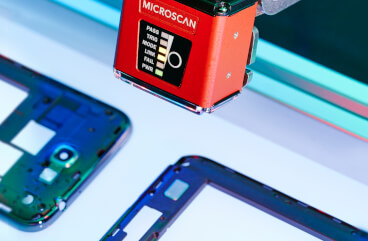Automatiseringsblog
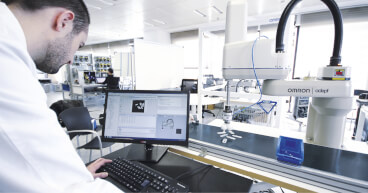
The power of collaboration between machines, people and teams
1 oktober 2019 With today’s rapid advances in technology, the manufacturing sector needs to be increasingly agile, ready to adapt to changing demands. Production lines must be more flexible, so that they can cope with shorter production runs, more varied products and tight deadlines. So how can manufacturers address these challenges? The solution lies in more advanced, interconnected and intelligent systems that can be programmed to handle a range of tasks.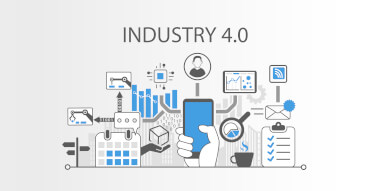
A practical illustration of IoT and Industry 4.0
1 oktober 2019 The Internet of Things (IoT) is a relatively new phenomenon. Prof Dr Thomas Pospiech, a teacher of Production and Process Management at Heilbronn University of Applied Sciences, was interviewed recently about the ‘IoT box’ he’s developed to give his students a practical illustration of this fairly abstract concept.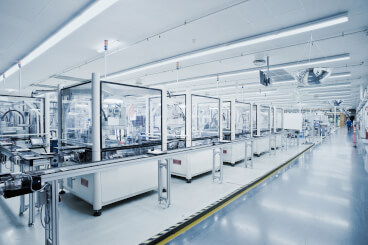
What is the effect of Brexit on automation in the UK?
26 september 2019 Currently, workers from the EU have the right to travel and work freely across European borders. However, key statistics of net migration from the Office of National Statistics in the UK, show that net migration to the UK has been significantly reduced since 2016. With the announcement of Brexit, and the ensuing uncertainty around it, UK factories are perhaps no longer a viable destination for European workers.
Mobile robots speed production at new ‘smart factory’
26 september 2019 Showcasing flexible production in real life, a new ‘Smart Factory’ in Norway uses a variety of robots in a system developed and implemented by system integrator Intek Engineering.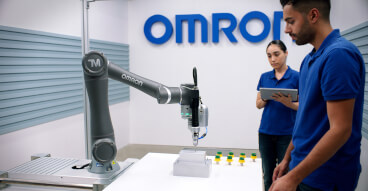
The future of flexible production - combining the power of mobile robots and cobots
19 september 2019 Consumer trends are changing and product life cycles are becoming shorter and shorter. As a result, manufacturers increasingly have to accommodate individual customer needs. To remain profitable, they need to have flexible production lines that can cope with rapid product changes, individual modifications and small lot sizes. Collaborative robots can help them to achieve their goals, especially if they can be used in a mobile environment – i.e. combined with mobile robotics.
Industry 4.0 - hot topic or hot air?
19 september 2019 Industry 4.0 is defined by Wikipedia as “the current trend of automation and data exchange in manufacturing technologies”. But what does that mean for you and your customers? And it isn’t really a new topic. At Omron, we’ve been working on manufacturing automation and data exchange for years.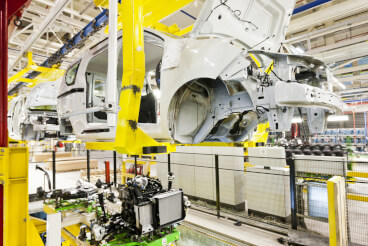
How to design integrated safety into machines from the start?
19 september 2019 Safety is a vital element of any modern production or packaging line. Safety systems protect employees and prevent malfunctions from causing damage to valuable products and equipment. If there’s an issue, a good safety system will stop the line to avoid any potential accidents, which also allows the line to be restarted quickly.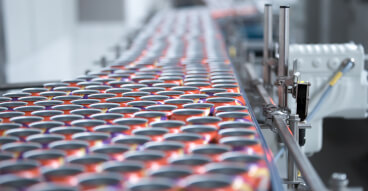
How smart is your packaging line?
17 september 2019 Industry 4.0 is changing the way in which manufactured goods are produced, through the use of automation and data exchange. By incorporating it into your packaging line, you can start to enjoy a range of benefits, from better data management to improved efficiency. Moving to a modern, flexible and smart line will bring the most benefits, but replacing a complete production line might not be a viable option if you’re operating with tight margins. However, even small changes to your existing facilities can significantly boost your efficiency.
Edge, Fog and Cloud clarified
16 september 2019 What do the terms Edge, Fog and Cloud mean in relation to artificial intelligence in industrial manufacturing? They are actually different layers of the Industrial Internet of Things (IIoT). Here is a quick overview on how we at Omron describe these terms in relation to AI, using an analogy with a nervous system.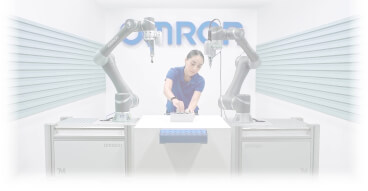
Collaborative robots: forging a new future
16 september 2019 In today’s ever-changing world, manufacturers are facing increasingly heavy demands. Factories worldwide are having to produce a high mix, low volume of products to meet customer needs, whilst also dealing with shorter product life cycles and shortages of labour. To remain competitive, manufacturers must be sufficiently agile to cope with rapid changes in lines and layouts.
Artificial Intelligence and the future of manufacturing
16 september 2019 The discussion about ‘Artificial Intelligence’ (AI) in manufacturing is now gaining momentum. This is mainly due to the availability of greater processing power and increasing volumes of data (the ‘sensorisation’ of the industry). A key factor that will help manufacturers to gain the maximum benefit from these recent advances is the use of adaptive algorithms. This in turn is a major stepping stone towards the development of ‘the factory of the future’.